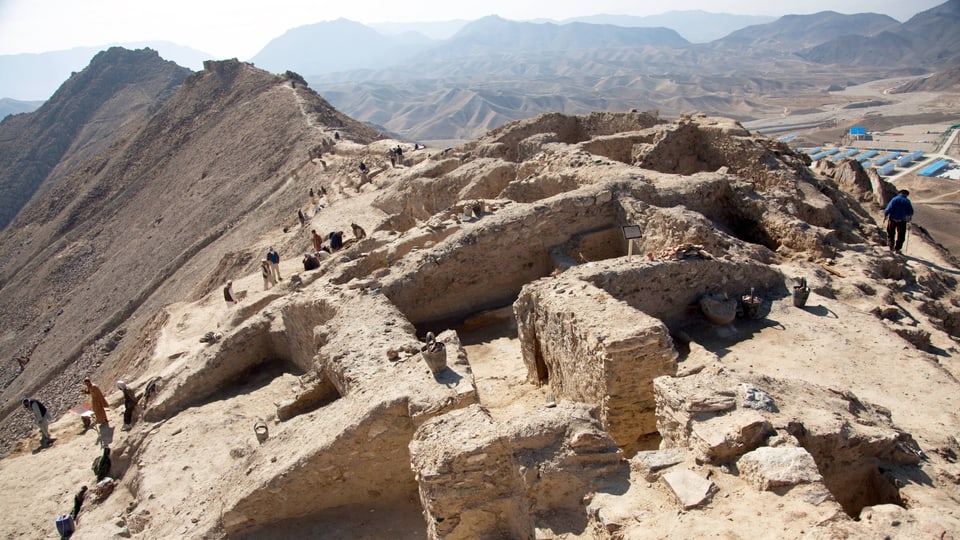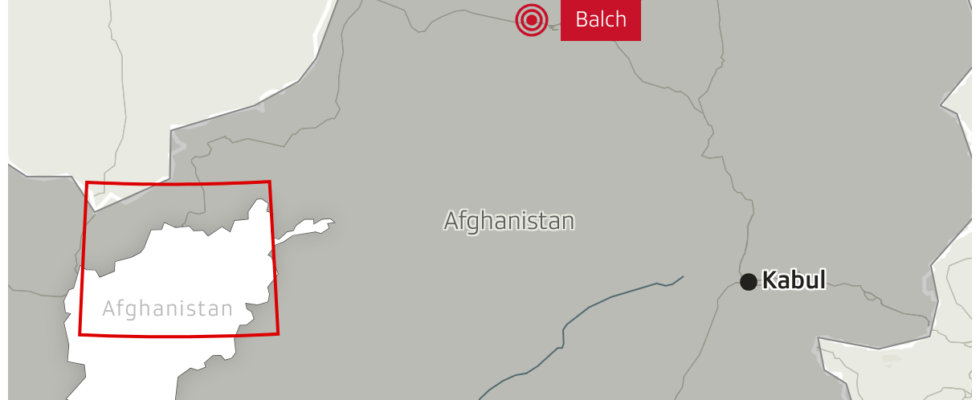Contents
Ancient sites are being looted in the north of the country. Many gold artifacts are probably simply melted down.
It’s all about this: Researchers at the University of Chicago are sounding the alarm: In Afghanistan, dozens of archaeological sites are being torn up by excavators to make it easier to loot them. The country has a rich cultural heritage that goes back far into the past. Thousands of ancient sites are waiting to be discovered – for example monasteries or caravanserais. Afghanistan was on the Silk Road between Iran and China. This cultural heritage of humanity is now threatened, according to archaeologists from Chicago.
Big damages: It is impossible to quantify exactly how much damage has already been done, says Mirko Novák. Professor of Near Eastern Archaeology at the University of Bern. Ultimately, there is no direct information, but is primarily dependent on the evaluation of satellite images. But: “The damage is immense,” Novák is convinced. After all, this region on the former Silk Road is “extremely important in terms of cultural history, since the Bronze Age”. Ancient Bactria – today’s region around Balkh in northern Afghanistan – is of outstanding historical importance, says the archaeologist.
Valuable Treasures: The artifacts are often gold objects, many of which had already been found in the region in earlier years – at that time by archaeologists from abroad. “As ancient objects, they are worth more than their pure material value,” says archaeologist Novák. However, the trade in ancient artifacts is usually prohibited. There is therefore a risk that the gold objects or gold coins will be melted down in Afghanistan and sold as plain gold. But the objects for archaeological research are lost forever.
Huge problem: Novák knows that illegal excavations are a big problem in Afghanistan. There is no longer any antiquities law there under the Taliban that restricts activities. In addition: “Due to the ideological background of the Taliban, people are actually encouraged to carry out predatory excavations.” In addition, the material need in the country is immense, which leads many ordinary people to try their luck by excavating ancient sites.

Legend:
There are abundant archaeological traces almost everywhere in Afghanistan. Like here the ruins of the former Buddhist monastery Mes Aynak around 30 kilometers from Kabul.
Imago / Jerome Starkey
Combat trade: There is little that can be done from outside to curb the illegal excavations in northern Afghanistan, says the archaeologist. In similar cases, containment was only possible if measures were taken on site. An attempt was made to make it clear to the people living there that long-term income for them – for example through cultural tourism – is only possible if the cultural sites are preserved. “None of this is currently possible in Afghanistan,” says Novák. The only thing left is to put the middlemen and sales markets here and in the Far East under so much pressure that trading is no longer profitable.
